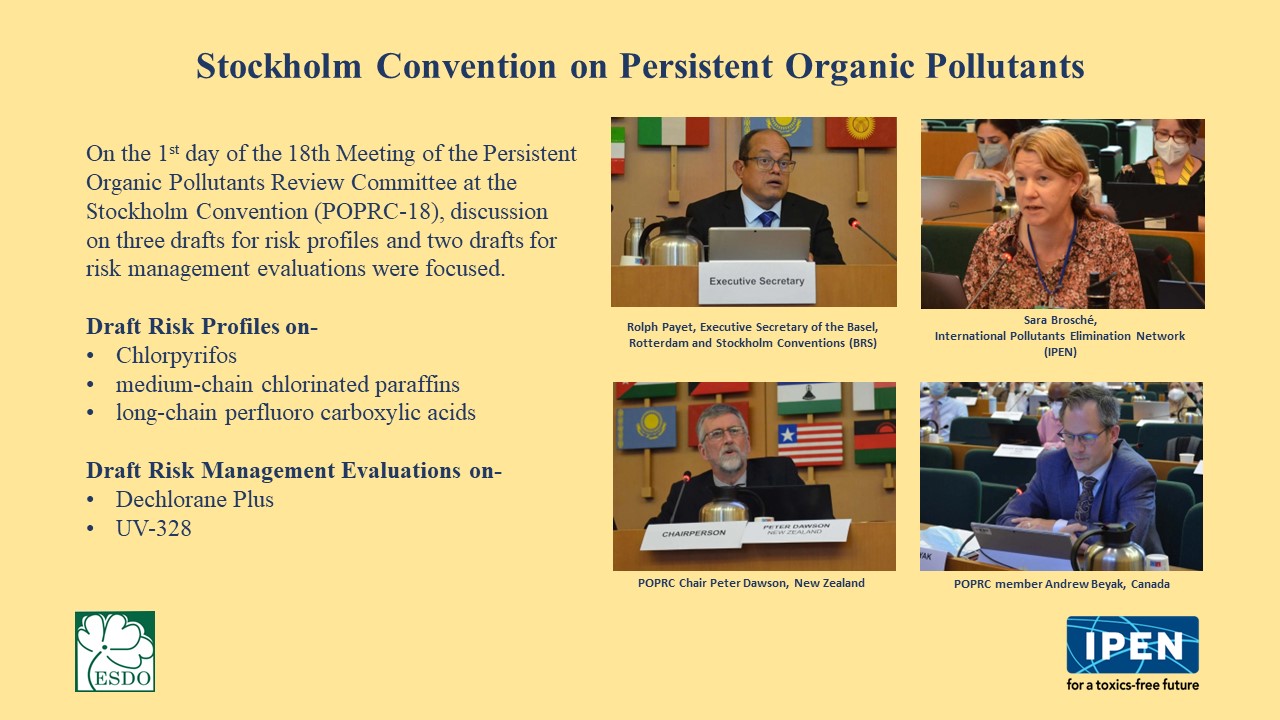Day 1 Highlights – Stockholm Convention on Persistent Organic Pollutants

The Stockholm Convention is a global treaty that attempts to safeguard both human health and the environment against the impacts of persistent organic pollutants (POPs). The Convention entered into force on May 17, 2004. This year, it is taking place in Rome, Italy from 26th September to 30th September 2022.
The 1st day of the 18th Meeting of the Persistent Organic Pollutants Review Committee at the Stockholm Convention (POPRC-18) focused on the discussion of three drafts for risk profiles and two drafts for risk management evaluations.
Draft Risk Profiles on- Chlorpyrifos, an organophosphate pesticide used on crops, animals, and buildings, kills pests and insects. There were initial discussions over whether the criteria for persistence, bioaccumulation, and long-range environmental transport were satisfied.
Medium-chain chlorinated paraffins, this is a complex set of chemicals, varying by chain length and level of chlorination. These chemicals are used in flame retardants, waterproof coatings, and in consumer products such as plastics and paints.
Long-chain perfluoro carboxylic acids (LC-PFCAs), these substances are used in water and oil-resistant coatings in a wide range of consumer products. Questions were raised regarding the evidence in the risk profile relating to the longer-chain PFCAs. Draft Risk Management Evaluations on- Dechlorane Plus is used in motor vehicles and medical devices and was recommended to eliminate production by the committee.
UV-328 is typically used as an ultraviolet (UV) ray stabilizer and was also recommended to be eliminated from production and use. Several interventions focused on the necessity for exemptions while balancing the need to avoid undesirable substitutes.
The Executive Director of Environment and Social Development Organization-ESDO is currently attending the Stockholm Convention on Persistent Organic Pollutants as a representative of ESDO and IPEN in Rome, Italy.


